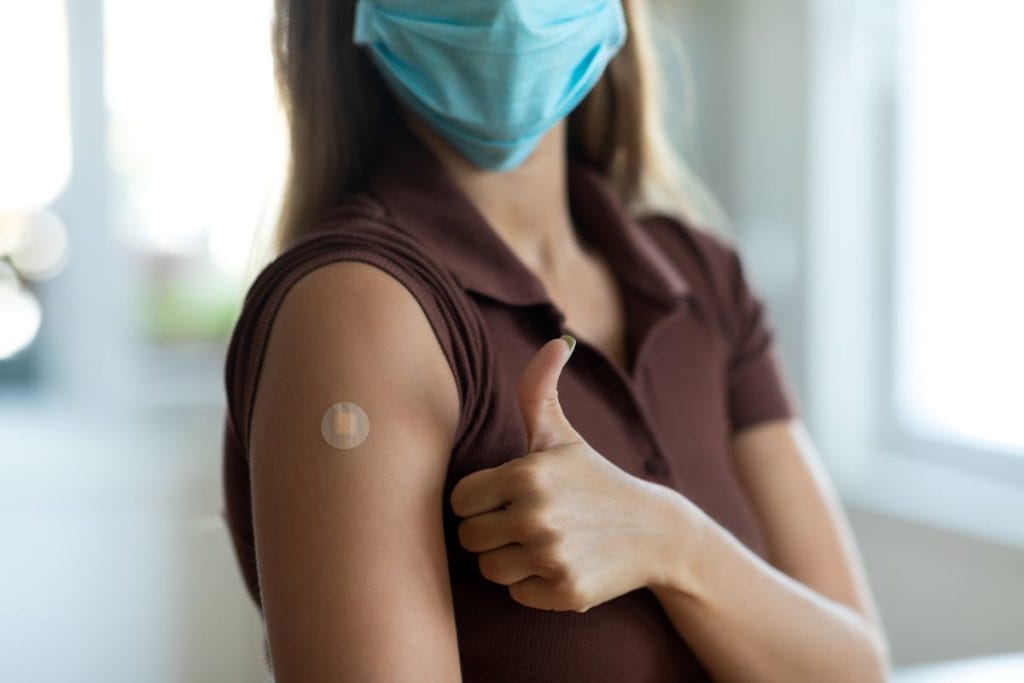
COVID-19 vaccines can be tolerated by most patients with confirmed mast cell activation syndrome (MCAS), according to a study that was presented at the annual AAAAI allergists’ meeting in 2022.
There has been hesitancy among patients with suspected or confirmed MCAS about receiving the COVID-19 vaccines due to early news about allergic reactions and previous personal experiences with other vaccines. Seeing those worries in her patients provided the impetus for the study, said Dr. Onyinye Iweala, an assistant professor of medicine (allergy and immunology) at the University of North Carolina at Chapel Hill.
The immune disorder MCAS leads to episodes in which the mast cells malfunction, releasing too many chemicals. This causes a patient to experience symptoms of anaphylaxis, including hives, swelling, low blood pressure, difficulty breathing and diarrhea.
“A lot of my patients were concerned” about possible reactions to the COVID-19 vaccines, Iweala, the director of UNC’s Allergy Mast Cell Disorders Program, told Allergic Living. “This study came out of wanting to understand and give informed guidance,” she said.
The researchers analyzed a year’s worth of medical records on 379 patients with MCAS concerns attending the UNC allergy clinic. Of those patients, 241 received at least one dose of a COVID-19 vaccine, and 41 of those 241 patients had a confirmed diagnosis of MCAS.
The scientists examined the experiences of the confirmed diagnosis people to see how they responded to the vaccine. The group was asked to list any symptoms shortly after vaccination; between 5 hours and seven days afterward; and then up to 21 days following a dose.
Half of the 41 patients with MCAS had typical side effects that the CDC describes, such as pain, redness and swelling at the injection site, fever, chills, fatigue, headache, muscle pain, and nausea.

MCAS and Side Effects
Fewer than eight people reported rapid heart rate, flushing, change in blood pressure, and dizziness. Such symptoms can be signs of an allergic reaction.
But in many MCAS patients, Iweala said these symptoms are often associated with dysautonomia, a condition that affects the nervous system. This condition frequently affects patients with MCAS. Of the 41 MCAS patients studied, 61 percent also have a diagnosis of dysautonomia.
One of the patients with MCAS received epinephrine, while five others experienced hives and generalized itching within four hours of receiving the vaccine. Two people experienced a feeling of impending doom. None of the patients reported wheezing, shortness of breath, or swelling, according to Iweala.
Given the initial patient concerns, Iweala was surprised that a higher number than expected (63.6 percent) of the patients in the study had received at least one dose of the Pfizer-BioNTech or Moderna mRNA vaccines, or the Johnson & Johnson vaccine. The study will be presented at the annual meeting of the AAAAI (American Academy of Allergy Asthma & Immunology) in Phoenix, Arizona.
“This study has shown me that COVID-19 vaccines can be tolerated by patients who have MCAS or are concerned they have MCAS,” Iweala said.
It’s not to say that patients might not have more severe symptoms than those without the condition, but she says the benefits of protection against the COVID-19 virus still outweigh those risks.
The researchers also plan to analyze data on the 241 patients who had suspected (but not confirmed) MCAS and received at least one dose of a vaccine.
Related Reading:
COVID-19 Vaccines: How to Tell an Allergic Reaction from a Side Effect
3 Newly Approved Eczema Therapies Seen as ‘Game-Changing’





